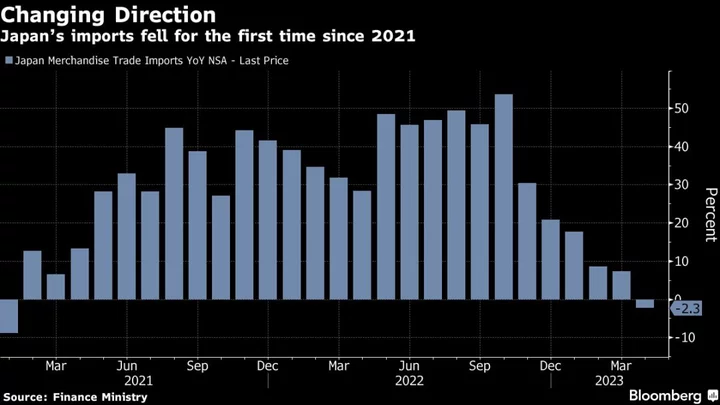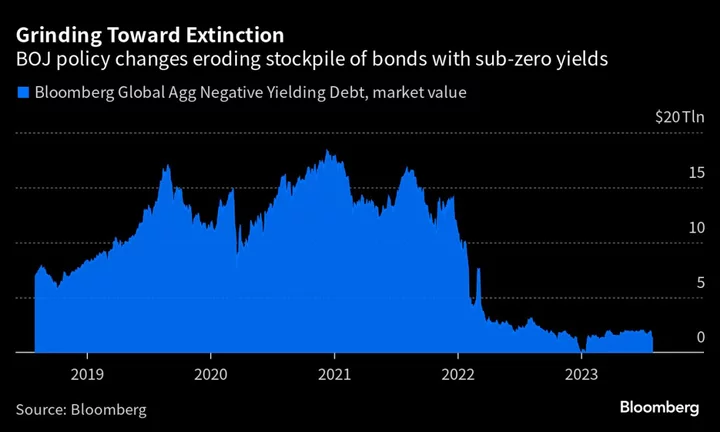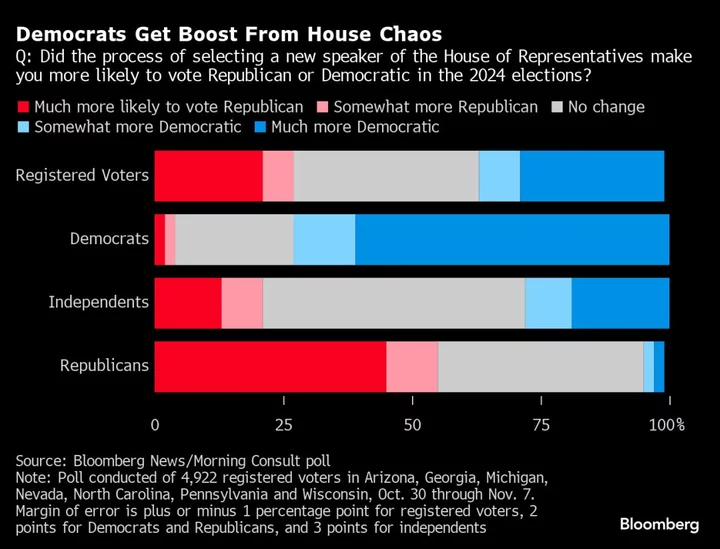Japan’s imports fell for the first time in more than two years as commodity prices softened, cushioning the impact from a global economic slowdown that is weighing on exports.
The value of imports decreased 2.3% from a year earlier in April, following a 7.3% rise in the previous month, the finance ministry reported Thursday. A decline in crude oil and liquid natural gas shipments dragged on the figures.
The reading turned negative for the first time since January 2021, and was worse than analysts’ forecast of a 0.6% decline.
Exports were up 2.6% from a year ago, compared with analyst expectations of a 3.0% gain. Car shipments largely drove the increase.
The decline in imports reflect a fall in commodity prices as the impact from the Russia-Ukraine war drags less on energy costs.
The cheaper import bill will likely help temper the effects of the global economic slowdown amid central banks’ ongoing monetary tightening. The Bank of Japan’s global peers are continuing to raise interest rates, although there’s an increasing view that the rate hike cycle is heading toward an end.
The falling import bills also helped cut Japan’s prolonged trade deficit. The trade shortfall shrank to 432.4 billion yen ($3.1 billion) in April, the smallest in over a year.
For Thursday’s trade data, the average exchange rate was 132.23 yen against the dollar, 7.6% weaker than a year ago.
What Bloomberg Economics Says...
“Sluggish consumer spending was probably more dominant, pushing down total imports.”
— Taro Kimura, economist
For the full report, click here
(Updates with more details from the report, Bloomberg Economics comments)









